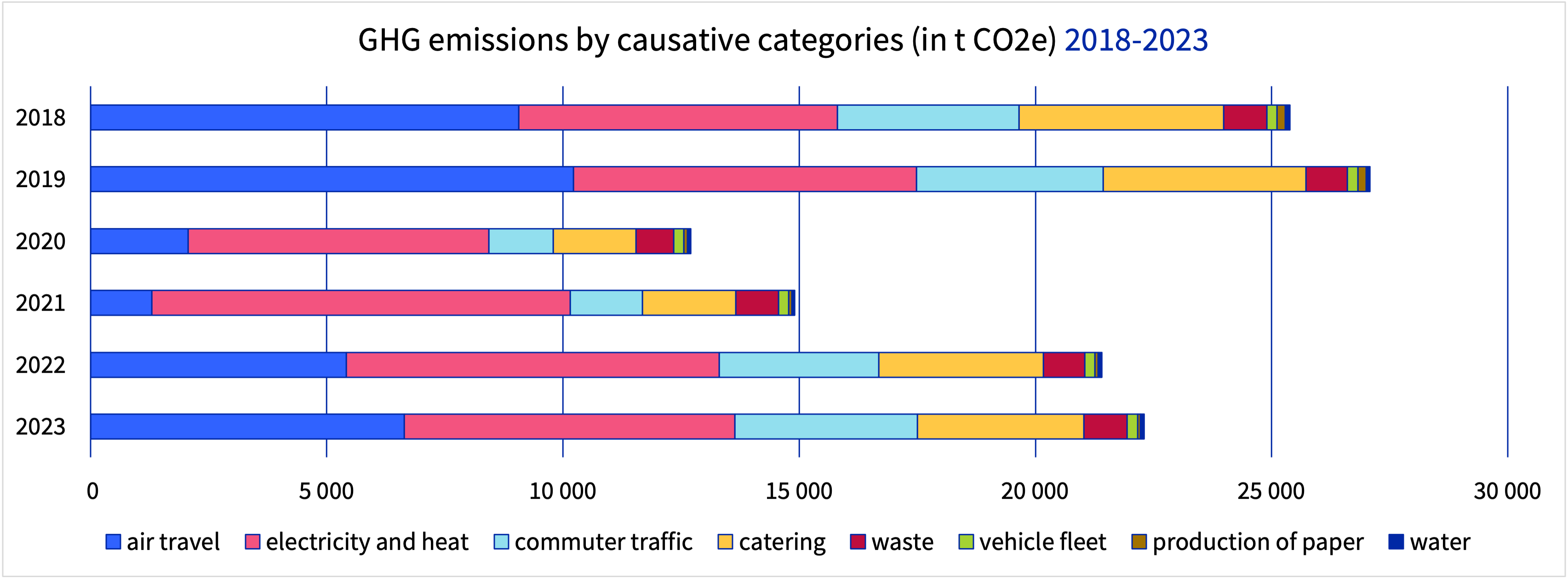Navigation auf uzh.ch
Navigation auf uzh.ch
The «Decarb UZH Climate Neutrality 2030» project aims to contribute to achieving the University of Zurich's climate neutrality goal by 2030. This will be accomplished through scientific analyses, establishing reduction pathways (especially for impact categories where none currently exist), planning and implementing concrete measures, and building an efficient data management system.
Emission Drivers at UZH
Currently, the focus is on the impact categories of energy, air travel, catering, and waste. Four initial task forces are planned, led by the following individuals:
The selection of these categories for task forces is based on the current greenhouse gas (GHG) inventory. This is illustrated in the following chart, which shows the development and distribution of UZH's GHG emissions from 2018 to 2023:

The main emission drivers are clearly identifiable: energy (represented as electricity and heat in the chart), air travel, catering, and waste. Commuting is also a significant contributor, but due to the lack of university-wide data collection, its figures are based on estimates, and commuting is not currently part of the strategic project.
The chart reveals both progress and challenges over the years:
Emissions from air travel have been reduced by 27% (comparison: 2018 to 2023).
Energy-related emissions, despite numerous measures, have increased by 4%.
Significant reductions in catering-related emissions (-19%) have been achieved through actions like reducing meat-based menus in dining facilities.
The MCC (Mercator Research Institute on Global Commons and Climate Change) Carbon Clock of MCC shows how much CO2 can be released into the atmosphere to limit global warming to a maximum of 1.5°C and 2°C, respectively. With just one click, you can compare the estimates for both temperature targets and see how much time is left in each scenario. https://www.mcc-berlin.net/en/research/co2-budget.html
November 2024 to October 2026
Executive Board of the University
Executive Board of the University and Deans (Chair: President)
Nils Handler, in close collaboration with the Sustainability Hub, the Delegate for Sustainability, and the Sustainability Commission